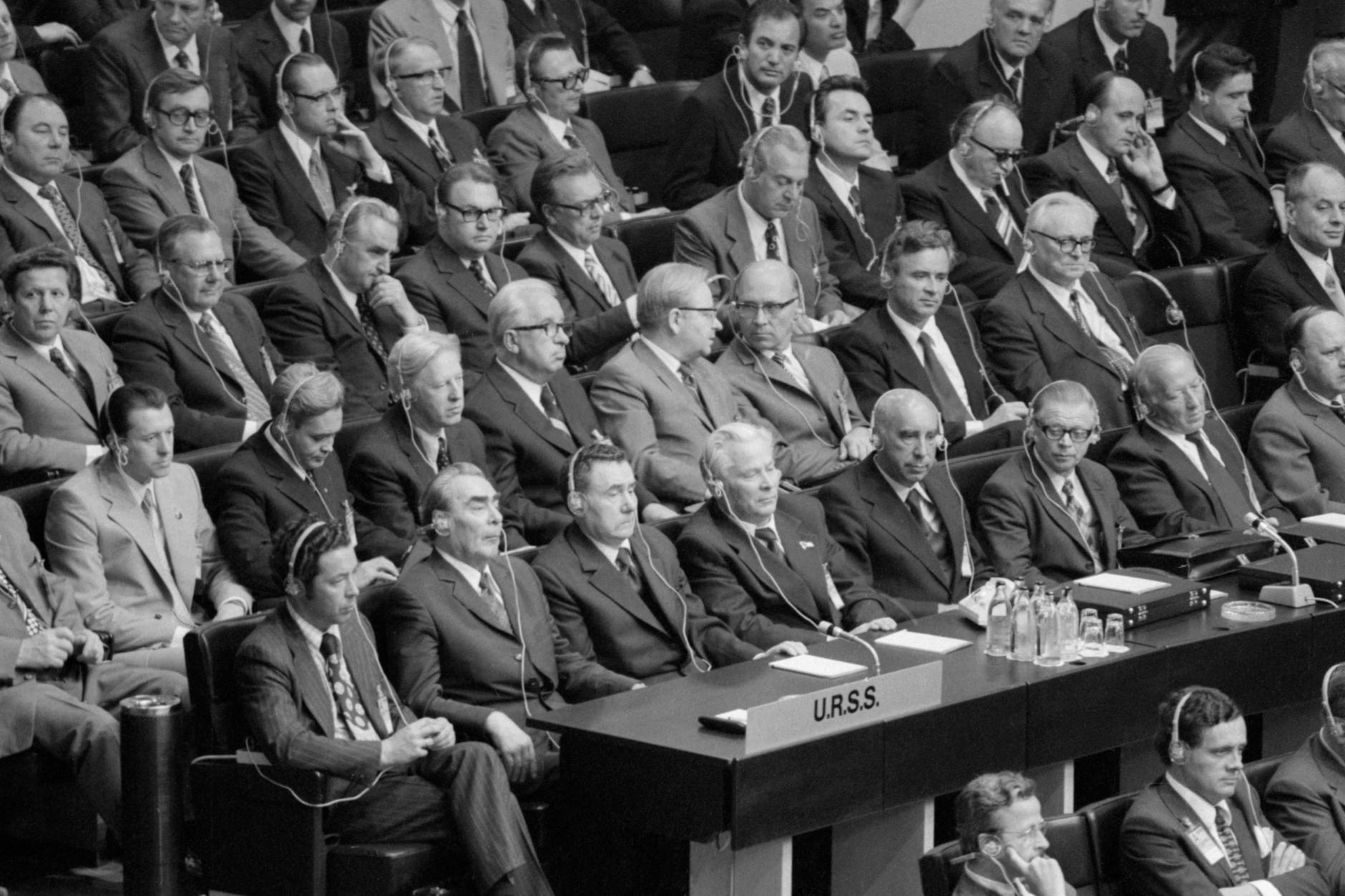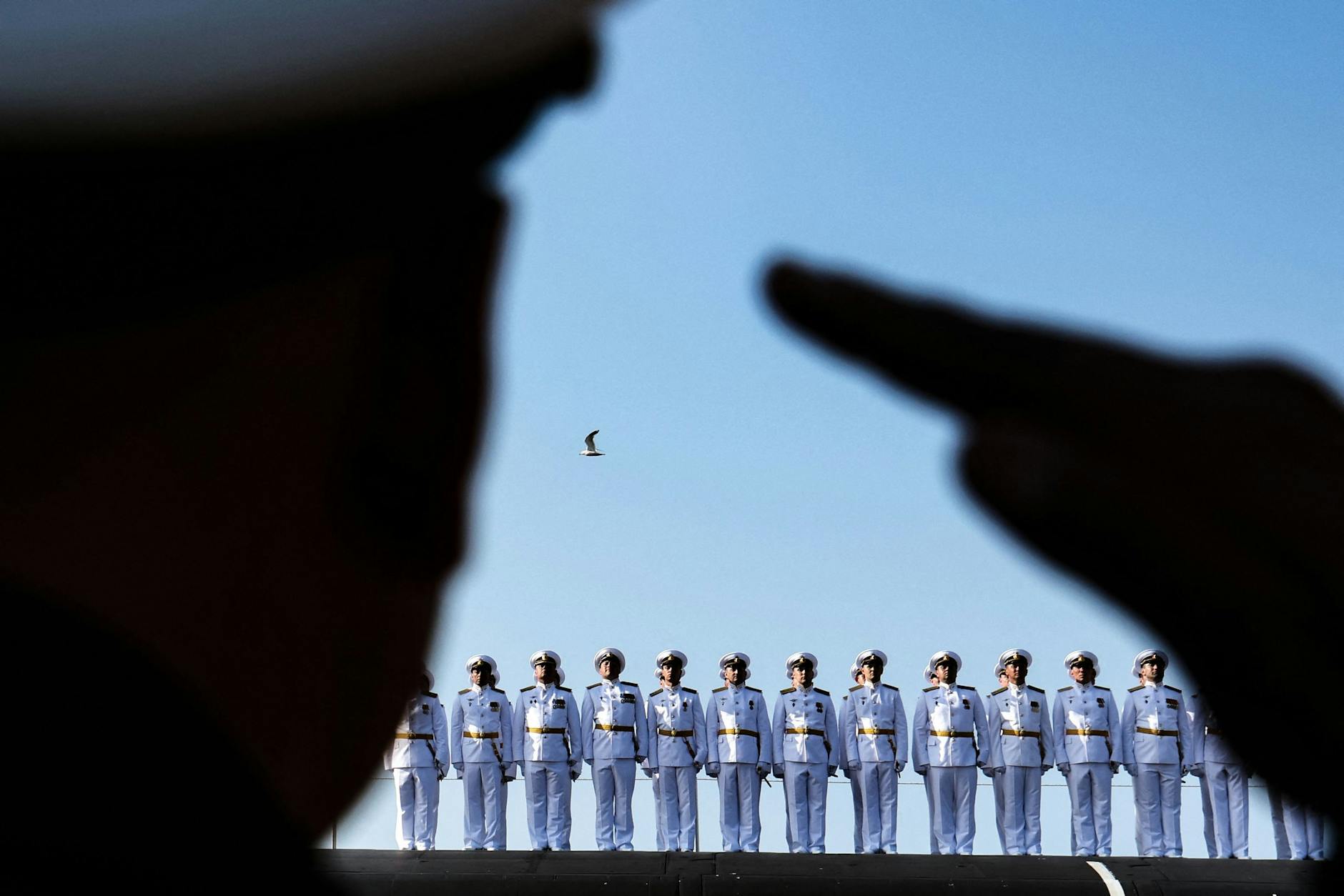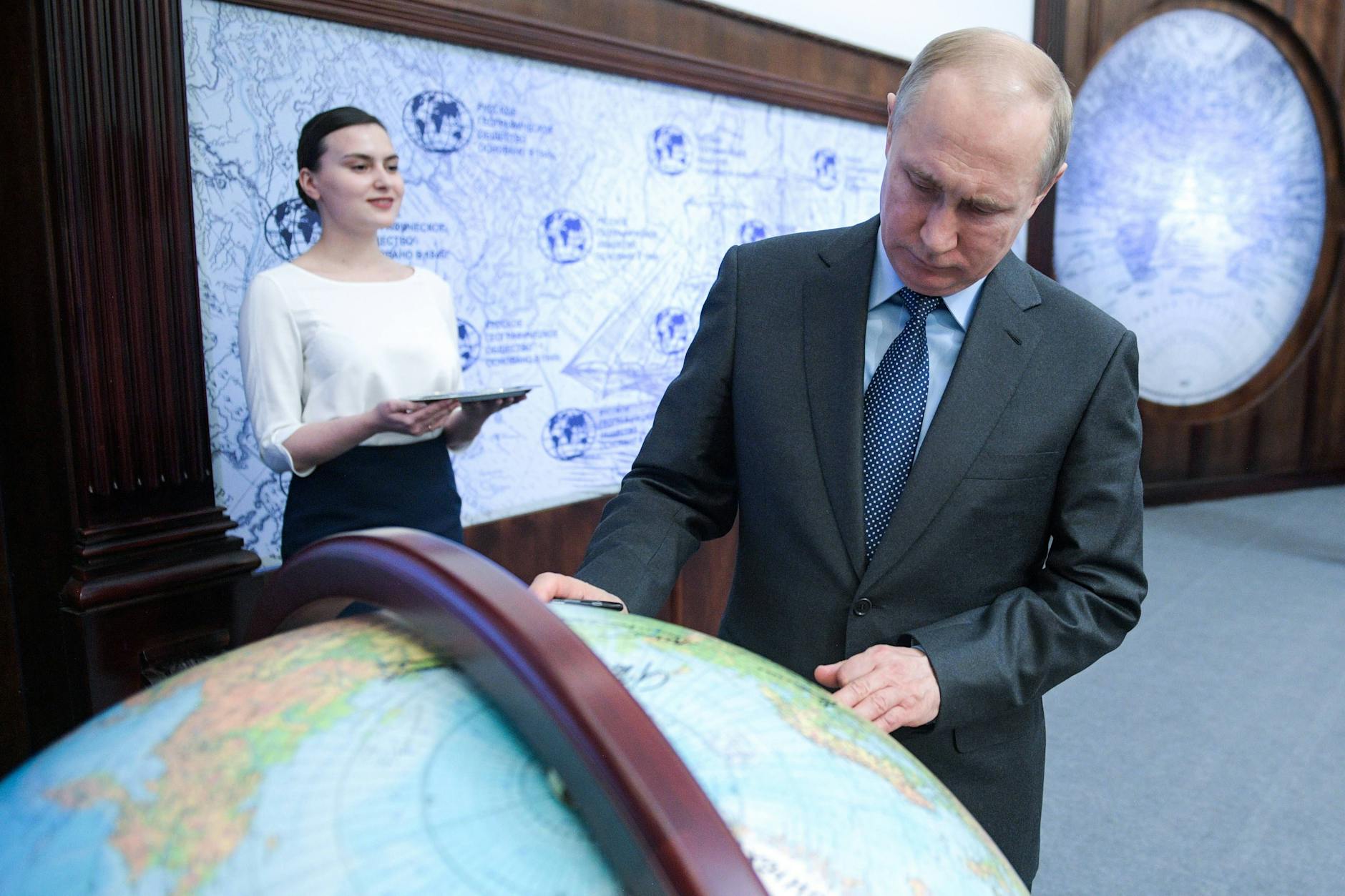What the diplomat Hoffmann disregards in his “settlement with Chancellor Merz”

The title of the article by former Ambassador Hellmut Hoffmann, "Fell for Our Own Propaganda," published in the Berliner Zeitung , in which he "takes a stand against Chancellor Merz ," is aptly applied to him. In any case, the essay practically demands a response. Hellmut Hoffmann is clearly among those who view Ukraine "only through Russian eyes," something against which this year's recipient of the Peace Prize of the German Book Trade, Professor Karl Schlögel, rightly often rails.
Two views on Russia's behaviorHellmut Hoffmann doesn't want to be counted among those who "understand Russia ." He certainly isn't one in any sense other than the one intended. Yet "understanding Russia (and Vladimir Putin )" is more urgent today than ever. Some who downplay the revisionist, neo-imperialist, and colonialist motivations behind Russia's aggressive expansion policy must be acknowledged, in addition to a shameful lack of empathy for the Ukrainian people threatened with annihilation, as well as a shocking blindness to Putin's goals. Hoffmann, too, considers Putin's actions an understandable (even acceptable?) reaction to Western actions.
Two versions of the Western view of Russia's behavior are presented: a "revisionist-imperialist agenda" vs. rejection of an "anti-Russia on the border." Hoffmann's sympathy for the second "interpretive pattern" is clear: Like Putin, he apparently rejects a "highly armed Western bulwark on Russia's doorstep," as the trivializing descriptions demonstrate. Since this "could not be achieved through negotiations," Putin "decided on military intervention" and "is using the opportunity to secure territories in eastern Ukraine that he believes he can claim due to predominantly Russian settlement and arbitrary border regulations from the Soviet era."
A word about the nature of this "military special operation" is appropriate here—not least because many quarters seem to have become accustomed to the idea that "two belligerent forces" (one German diplomat even spoke of "two squabblers") are measuring their strength here, both with "maximum goals." In reality, this is a brutal Russian offensive to subjugate its neighbor. The Russian goal is the conquest of Ukraine and the destruction of its national identity and culture, for which any means are justified, including constant terrorist attacks against the population and civilian infrastructure. Ukraine's "goal" is simply to prevent this.
When Hoffmann contrasts "Siegfrieden" (Victory Peace) with "compromise peace," he must ask himself where he sees a possibility for "compromise" between the intention to destroy and the will to survive. The demand that "the dying must stop" is general and understandable. However, this undifferentiated approach also expresses the unfortunate equation of aggressor and victim, as long as it ignores the fact that every dead or wounded person in this war is Putin's responsibility. This war is criminal in its intent and aim (jus ad bellum) as well as in its methods of international humanitarian law (ius in bello).
And when – even from the West, viewing Ukraine as an object – it is said condescendingly that it will not work for them without territorial cessions, the following must be pointed out: “Territories to be ceded” are not abstract regions, but the homeland of millions of Ukrainian people.
The fate of those under Russian rule could already be observed after the start of the Donbass war in 2014, and since the invasion, it has taken on the character of the most brutal Russification: harassment of non-conformist Ukrainians, torture chambers, disappearances of local politicians and much more, including the deportation of tens of thousands of children, whose identity papers are destroyed and who end up in Russian families or homes under "new" names, if not, in some cases, one day in the Russian armed forces.
Cooperative securityThe author of these lines clearly leans toward Hoffmann's first "interpretation." He himself spent years developing ideas for cooperative security with Russia—in a key position at NATO HQ and later as a journalist. The fact that security against Russia is now once again a priority is due to his leadership, which should actually recognize that this is not in its own interest. Incidentally, the central element of the cited NATO-Russia Founding Act was not the West's self-restraint on troop stationing on the territory of the new members (which was meticulously adhered to until the Russian invasion of Ukraine), but rather the mutual assurance between Russia and NATO that they would no longer view each other as adversaries.
If NATO's military intervention in Kosovo is cited as the reason for Russia's abandonment of this "business foundation," it is historically true that in 1998, during the various UN Security Council resolutions on the Serbian harassment and expulsion of Kosovo Albanians ("ethnic cleansing"), it was Russia that prevented these resolutions from being enforced against Serbian President Slobodan Milošević by threatening to use military force. If the resolutions had not been "toothless," the Kosovo War would not have taken place.
The NATO-Russia Founding Act corresponded to the spirit of the 1975 Helsinki Final Act . Hoffmann's mention of this act is limited to the preceding Conference on Security and Cooperation in Europe (CSCE), which he cites merely as an example of a successful negotiation process. What remains unmentioned is the significance of the foundations of the European security order agreed there, which were reaffirmed in the 1990 Charter of Paris: sovereign equality of European states, territorial integrity, inviolability of borders, peaceful dispute settlement, freedom of choice of alliance. No mistake the USA , the EU, or NATO may have made in their dealings with Russia justifies the destruction of this order by President Putin and his brutal war of aggression.

A true "Putin understander" must consider his motives. The author of this reply is convinced that Russia's security "interests" vis-à-vis the completely defensive NATO are more a matter of political-psychological "sensitivities": status, a humiliation complex as a loser in the Cold War, imperial phantom pain (the collapse of the Soviet Union as the "greatest geopolitical catastrophe of the 20th century"), frustration at not being perceived by the United States as a major power of equal standing (which is now being enforced through the disruptive potential and obstructive power of an obstructive "spoiler nation"). This is overshadowed by neo-imperialism, colonialism, and revanchism, and many overlook the fact that the Soviet Union used to be the status quo power and the West was "revisionist" (albeit through peaceful means). Today, the reverse is true, and revisionist Russia unhesitatingly uses military power for this purpose.
But at its core, it's about Putin's deep-seated fear that the "democratic virus" could infect his people. He must view a democratic Ukraine with a vibrant civil society, and one that is also oriented toward the West, as an existential threat to his system of rule and power. After all, the so-called color revolutions have even made it into Russian security doctrine as a security threat to Russia. Domestic repression intensified after the mass demonstrations in many Russian cities in 2011/12 following the rigged Duma elections and Dmitry Medvedev's replacement by Putin as president again. And when television reports showed Kyiv residents strolling through the garden and palace of ousted President Viktor Yanukovych, panic broke out in the Kremlin. "Putin," wrote a German journalist, "is not afraid of NATO, but of his own people."
It's actually common knowledge that Putin wouldn't stop there after a victory over Ukraine. He would take over Georgia and Moldova and—depending on how weak and disunited he perceived NATO to be—test them militarily as well. At least something like that can't be ruled out. It can be considered a foregone conclusion that his goals include weakening and dividing NATO and the EU, as well as achieving compliance, even subjugation, of as large a part of Europe as possible. In his letters to NATO and the US government of December 17, 2021, the Russian president didn't make friendly offers of negotiations, but rather announced ultimate goals that essentially amount to a revival of the Brezhnev Doctrine. And the idea that the destruction of the European security order is merely a precursor to a "reordering" of the world is, so to speak, the programmatic agenda of authoritarian powers like Russia and China.
Far superior NATO?Ambassador Hoffmann repeatedly points out NATO's "vast military superiority" over Russia on many occasions. But this cannot be deduced solely from the "nitpicking" of arms controllers.
NATO is not a monolith like Russia, but has 32 members, some with very different threat perceptions. Their arms industries largely compete with each other with far too many tanks, aircraft, and ships. The questioning of the mutual assistance guarantee by US President Donald Trump, who is interested in "normalizing" relations with Russia, reveals the Europeans' dependence on key American capabilities ("enablers"). There, as well as with the traditional weapons systems that were phased out en masse in the hopeful decades, there is a huge backlog.
One element of Russian (at least regional) military superiority is the willingness to recklessly and brutally use military force – something NATO is structurally and politically incapable of (even in the sense of preventive use). Russia also has the advantage of the "inner line"; in a military conflict, NATO would have to deploy extensive reserves over great distances. And of course, Hoffmann's exaggerated insinuation that NATO expects an "imperialist attack on us all within five years at the latest" does not correspond to reality. But in the exposed Baltic states, for example, many scenarios are conceivable: intensified hybrid warfare, paramilitary advances, bargaining chips, actions that would cast doubt on the NATO Council as to whether Article 5 assistance is warranted. If, for example, "No World War for Narva" were to prevail, NATO would be finished.
A military threat arises from capabilities and intentions. The massive buildup of Russian military capabilities is obvious. Intentions can be deduced from Putin's proclaimed goals, but they can be influenced by Putin's own military strength and defense planning. This is called deterrence, the core of which lies in its credibility. It's about deterring Putin from any military adventure. If he didn't have sinister goals for the future, which NATO must prepare for, Russia's immense, economically damaging arms production and further personnel reinforcements would be utterly pointless. So what's the point? In any case, appeasement, accommodation, and concessions are counterproductive towards Putin.

This also applies to Ukraine. Hoffmann rejects a "Siegfrieden" (victory peace), which probably requires clarification that "victory" over Russia in this context does not mean occupying Russia like Nazi Germany after World War II, but rather forcing it to abandon stolen territory. Russia's invincibility, propagated by Sahra Wagenknecht and her trusted generals Kujat and Vad since the beginning of the offensive, was a veneer that shattered at the latest with the Ukrainian attack on Kursk, along with the completely helpless Russian response. Had Ukraine received sufficient combat vehicles and infantry fighting vehicles, artillery, and ammunition in time to expand the spectacular counterattack successes near Kherson and Kharkiv in the fall of 2022, or had it received timely long-range weapons such as the Taurus cruise missile to permanently impair Russia's command and control capabilities, launches, and supply lines, things would look very different for it. It is easy to reflect on the situation in Ukraine, which has “worsened for more than three years.”
But even though Putin has already lost out on his original goals and, with his "mass over quality" system and horrendous losses of personnel and material in the East, is making only "creeping" progress, the aura remains. And the defeatists are increasing their reluctance to provide military support to Ukraine, in the spirit of a "self-fulfilling prophecy." The overly cautious US President Joe Biden and the escalation-fearing German Chancellor Olaf Scholz (behind whom, of course, many others hid) played a fatal role in this.
Peace efforts have little prospect as long as Trump adheres to a perverted concept of "peace" (without any empathy for the Ukrainian people) and the Kremlin declares its maximum demands as a precondition for serious negotiations: "de-Nazification," demilitarization, neutrality, the evacuation of the four oblasts already "Russian" on paper in the Russian constitution, and "recognition of territorial realities." And when Putin or Lavrov speak of the "roots of the conflict," they mean the desire of free states to belong to the West and, essentially, the very existence of Ukraine. (And let's not be under the illusion that he would grant the Baltic states a greater right to their own statehood.)
The West must continue to strengthen Ukraine, not just "for as long as necessary," but with all necessary means and in a timely manner. Putin is only feigning a willingness to negotiate and is acting stallingly. However, he is crystal clear in expressing his goals; one could almost call it honesty. But what else?

"Is Putin lying? We can't know," Hoffmann postulates, raising the rhetorical question regarding Putin's handling of the truth: "The category of lying is even appropriate in political-military contexts." To qualify this, he uses the long-refuted claim that Boris Johnson dissuaded Volodymyr Zelensky from accepting the alleged Istanbul "negotiated peace" in spring 2022, which he denied.
In one blatant instance, his credulity toward Putin's statements, which he chides Western politicians for questioning, is evident. During his appearance at the St. Petersburg Economic Forum in the middle of this year, Putin pointed out that Ukraine had committed itself "to neutrality and independence" in its declaration of independence. A look at the source, however, reveals that the declaration of independence of August 24, 1991, contains nothing of the sort, but simply states the following succinctly: "The Supreme Soviet of the Ukrainian SSR solemnly declares: Ukraine shall become an independent, democratic state. The Constitution and laws of Ukraine shall apply exclusively on the territory of Ukraine. This declaration shall enter into force upon its approval by referendum."
There are many other examples where "experts" have been taken for fools by the experienced KGB man Putin. Hoffmann's arrogant claim regarding Putin's July 2021 essay on the "historical unity of Russians and Ukrainians," which is full of historical distortion, also falls into this category: Critics "may have abandoned reading it" because of the text's long-windedness, at the end of which Putin "explicitly recognizes the Ukrainians' desire for their own state." In doing so, he points to "the relations between Germany and Austria, which also emerged from a shared history, as an example of constructive neighborliness." How naive must one be to take this at face value, to draw hope from it for good-neighborly Russian policy, not to recognize that such equality instead of subordination of Ukraine would be completely unthinkable for Putin, and to write: "Much disaster could have been averted if the article had been read to the end?" Putin continues that they understand if Ukraine defends its national interests, but not as a "tool in the hands of someone else who is fighting us." Of course, he decides when that is the case.
There were many offers for cooperation and inclusionWhat is true, however, is that Putin's angry speech at the Munich Security Conference in February 2007, with its dramatic expression of his hurt feelings and great power ambitions, should have been taken more seriously – not necessarily or even solely in terms of his completely one-sided criticism of the West, but rather in order to pursue a more realistic policy and better prepare. The West may not have done everything right, but it also didn't do everything wrong – right up to the founding act, there were numerous offers of cooperation and inclusion – and made many efforts to preserve Soviet, and then Russian, pride.
Hoffmann, on the other hand, leverages the completely distorted victim narrative that Russia has been constantly pushed back and rejected by the West and threatened by NATO expansion. Excessive sympathy for Putin is misplaced; rather, the criminality of this terrible war must be denounced constantly and even more forcefully. Never since World War II has it been as clear as in this war who is the aggressor and who is the victim. What does "friend-enemy thinking" mean here?
Once again, Peace Prize winner Karl Schlögel: “How can Europe stand by and watch while cities like Kyiv, Odessa, and Kharkiv are destroyed from the air!”
Brigadier General (ret.) Klaus Wittmann teaches contemporary history at the University of Potsdam.
Berliner-zeitung





